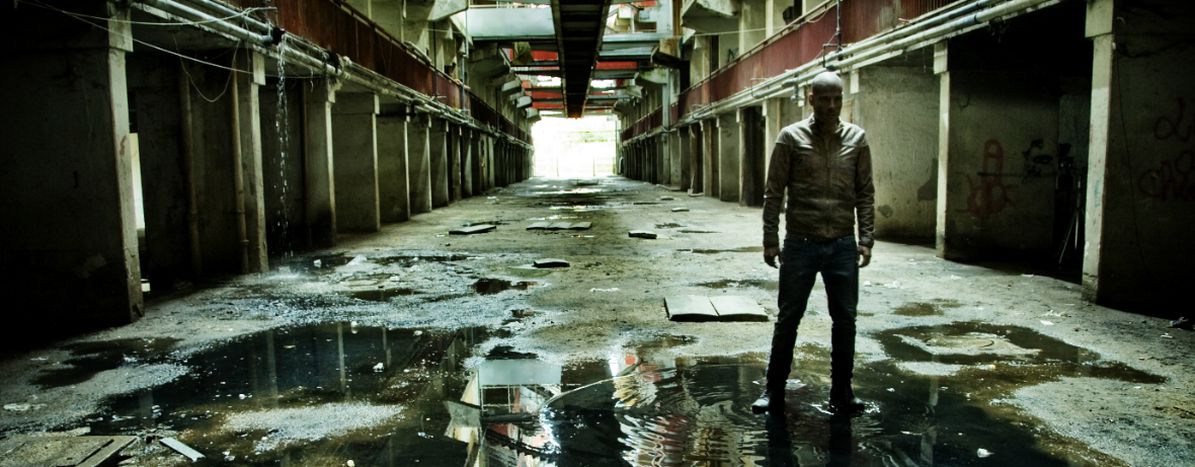
Gomorrah: Screen violence and the root of our fear
Published on
Translation by:
 Victoria Weavil
Victoria Weavil
The controversy over whether or not certain realities should be brought to the big screen is not a new debate, but would it not be more appropriate to reflect on what really causes our fear? Why are we more concerned by the representation of evil than by evil itself? Opinion piece.
We'll never know whether, following the premiere performance of the ancient Greek tragedy Medea in 431 B.C., the Athenian crowd called for Euripides to be charged with inciting infanticide.
Yet in 2016, Roberto Saviano – author of the bestselling novel Gomorrah (10 million copies sold worldwide) and co-creator of the TV series of the same name (topping viewing charts across the continent) – is at the centre of a storm of media controversy. His detractors have levelled allegations towards him that he is "celebrating evil", "depicting an absent State", and above all "portraying Italy in a negative light".
An absurd controversy
Gomorrah directly confronts the general public with a vision of horror and absolute evil, an escalation of endless violence, as shocking as a slap to the face. It depicts a Naples rife with murder, where business is conducted with the Mafia and where the eternal struggle between good and evil proliferates. We are all aware that evil exists, in its most ferocious, boorish form, yet we’re incapable of reacting to it, at least not until we are truly confronted by its consequences. We barely react reading reports in the paper, or watching them on TV. A massacre resulting in the loss of thousands of lives can, just a few years later, have given way to a dangerous desensitisation.
Yet we are fully capable of becoming indignant, even passionately so, when we witness evil depicted in a TV series. It momentarily tears us away from our state of blissful ignorance (or worse still, indifference). Herein lies a terrible paradox: such indignation is directed not so much at the existence of horrific realities, but instead at their illustration. Heaven forbid that any child of ours, innocently playing "nonviolent" video games, might want to get their hair cut like Genny Savastano, the show's principal character, or start swearing and cursing habitually. What we are really afraid of, in other words, is emulation.
Is there any real risk in life imitating art? In reality it's the other way around. Children take up arms in Scampia, teenagers discover drugs at all too young an age in Secondigliano, and gravestones with disturbingly recent birth dates mount up in the cemeteries of Naples. This is the reality that inspired Gomorrah, far from the reverse.
What are we really afraid of?
We mustn't forget that Gomorrah is, in essence, artistic expression enjoying extraordinary success, or that every work of art that reaches the general public (whatever the subject matter) inevitably becomes a tool to serve the interests of whoever consumes it. So it is that teenagers start speaking like the characters in the show, and Facebook groups like O’ Sistema or Malavita siciliana (The Sicilian Underworld), dedicated to prison detainees, post screenshots from the series, believing that their own lives mirror what happens on screen. (Yes, there really are Facebook groups dedicated to prison detainees that still haven’t been blocked).
Others, however, previously unaware of the existence of such realities, may choose to begin reading up on the history, informing themselves, and seeking to uncover the truth, even after having long been anaesthetised by a rampant crisis of misinformation, often relegating shocking news to the back page of local papers.
Confronted by scenes of violence and moral corruption (be it in film, image or novel), there will always be those who draw inspiration from, or identify with, what they see. Yet there will also be others whose civic responsibility will be strengthened as a result. This has always been the nature of art.
If a representation of evil is blamed for the existence of the evil itself, we are faced with a paradox. When we look in the mirror, we see the sick society we live in reflected back at us. We find out how low human beings are willing to stoop. We realise how widespread criminality has become a habitual source of fear, above all for those in power, who are partly responsible for that which we see. Perhaps we know, deep down, that ignorant populations are easier to govern. Perhaps, beyond all logical thought, what frightens us most is our slight fascination with all of this. What really terrifies us about our reflection is not knowing, at the end of the day, which side we are really on. Do we have the courage to choose the path of good? Or are we more inclined to slide into violence and moral corruption?
What is certain is that we can't assign responsibility for this to a TV series. We have a duty to decide for ourselves; to be capable of making that decision. We have to make up our minds as the society we want to live in, as to what to teach our children, as to who we really want to be. This is our job, not that of Saviano, Jesus or Hitler.
---
This article was published by our local team at cafébabel Palermo.
Translated from Perché Gomorra fa paura?


